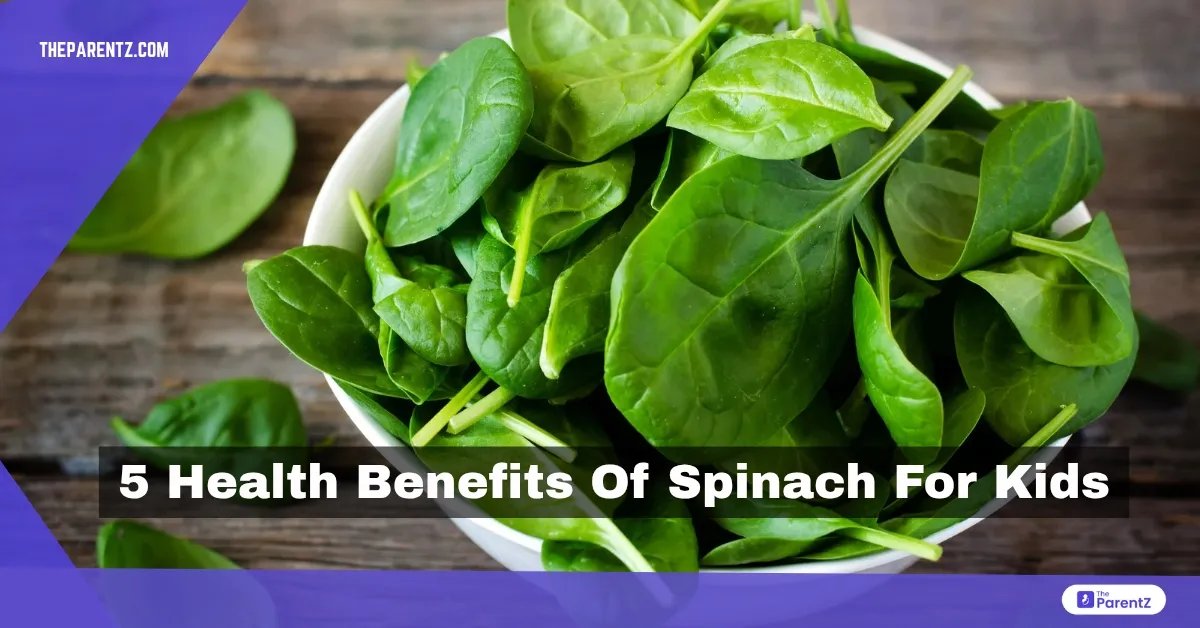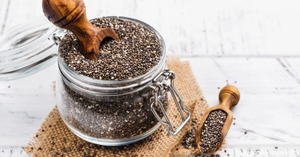Getting kids to eat their greens can feel like an uphill battle, but when it comes to spinach, the effort is absolutely worth it. Packed with essential vitamins, minerals, and antioxidants, spinach is a true superfood that can support a child’s growth, immunity, and overall well-being. But what makes it so special?
According to the USDA, one cup of cooked spinach contains about 4 grams of fiber, 5 grams of protein, and over 50% of the daily recommended intake of vitamin A—all essential nutrients for growing children. Yet, many kids don't get enough of it in their diet. Read below this article to explore five incredible health benefits of spinach for kids and why it deserves a permanent spot on their plates.
Boosts Immunity and Fights Infections
Children are constantly exposed to germs, whether at school, daycare, or the playground. A strong immune system is crucial to keeping illnesses at bay, and spinach provides just the right nutrients for that.
Rich in vitamin C, vitamin A, and antioxidants, spinach helps the body fight infections and speed up recovery from common colds and fevers. Research suggests that vitamin A plays a vital role in developing immune cells, making kids more resistant to infections. Additionally, spinach contains flavonoids, natural compounds that help reduce inflammation and keep the immune system strong.
Supports Healthy Bone Growth
Did you know that 90% of a child’s bone mass is developed by the age of 18? That’s why getting enough calcium and vitamin K during childhood is essential. Spinach is a rich source of calcium, vitamin K, and magnesium, all of which contribute to strong and healthy bones.
Calcium is the building block of bones, while vitamin K enhances calcium absorption and helps prevent fractures. A single cup of cooked spinach provides about 250 mg of calcium, making it an excellent plant-based alternative to dairy. If your child is lactose intolerant or simply not a fan of milk, adding spinach to their diet can help bridge the gap.
Enhances Brain Development and Focus
The early years of a child’s life are crucial for brain development, and diet plays a significant role in cognitive function. Spinach contains iron, folate, and omega-3 fatty acids, all of which are essential for brain health.
Iron deficiency is one of the leading causes of poor concentration and fatigue in kids. Studies show that iron-deficient children may experience cognitive delays and struggle with focus. Since spinach is a plant-based source of iron, pairing it with vitamin C-rich foods (like tomatoes or oranges) helps increase iron absorption, ensuring kids get the most out of their meals.
Promotes Better Digestion and Gut Health
A healthy gut is the foundation of overall well-being, and spinach can help keep digestive issues at bay. Loaded with dietary fiber, spinach aids digestion, prevents constipation, and promotes a healthy gut microbiome.
Fiber-rich foods are crucial for children, as studies suggest that only 5% of kids in the U.S. meet their daily fiber needs. One cup of spinach provides about 4 grams of fiber, helping regulate bowel movements and keeping little tummies happy. Additionally, the natural water content in spinach helps soften stools, making digestion smoother and more comfortable.
Increases Energy Levels and Prevents Anemia
If your child often feels tired or lacks energy, they may not be getting enough iron in their diet. Iron is essential for the production of hemoglobin, the protein in red blood cells that carries oxygen throughout the body. A lack of iron can lead to fatigue, weakness, and even anemia.
Spinach is one of the best plant-based sources of iron, providing about 2.7 mg of iron per 100 grams. While plant-based iron is not as easily absorbed as iron from meat, pairing it with vitamin C-rich foods like citrus fruits or bell peppers can significantly boost absorption. Adding spinach to smoothies, soups, or stir-fries is a simple way to ensure kids get an iron-rich diet and stay energized throughout the day.
Conclusion
Spinach may not be every child’s favorite food, but its incredible health benefits make it worth sneaking into meals. From boosting immunity and bone strength to supporting brain function and digestion, this leafy green is a powerhouse of essential nutrients.
If your child is hesitant to eat spinach, try incorporating it into familiar dishes—blend it into smoothies, mix it into pasta sauces, or add it to omelets. With the right preparation, even the pickiest eaters can learn to love this nutritious superfood!









Be the first one to comment on this story.